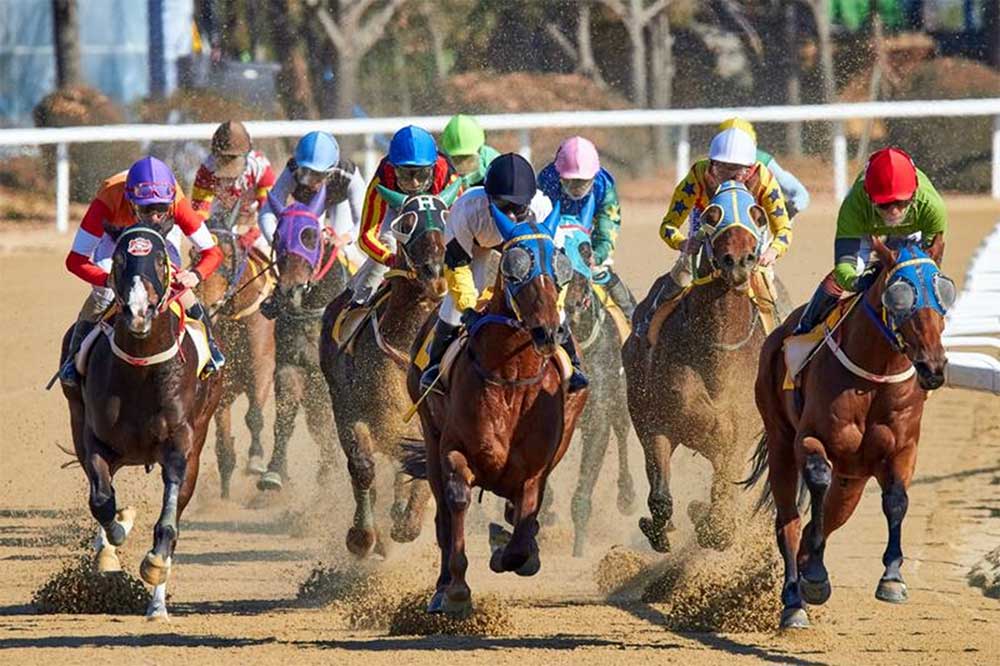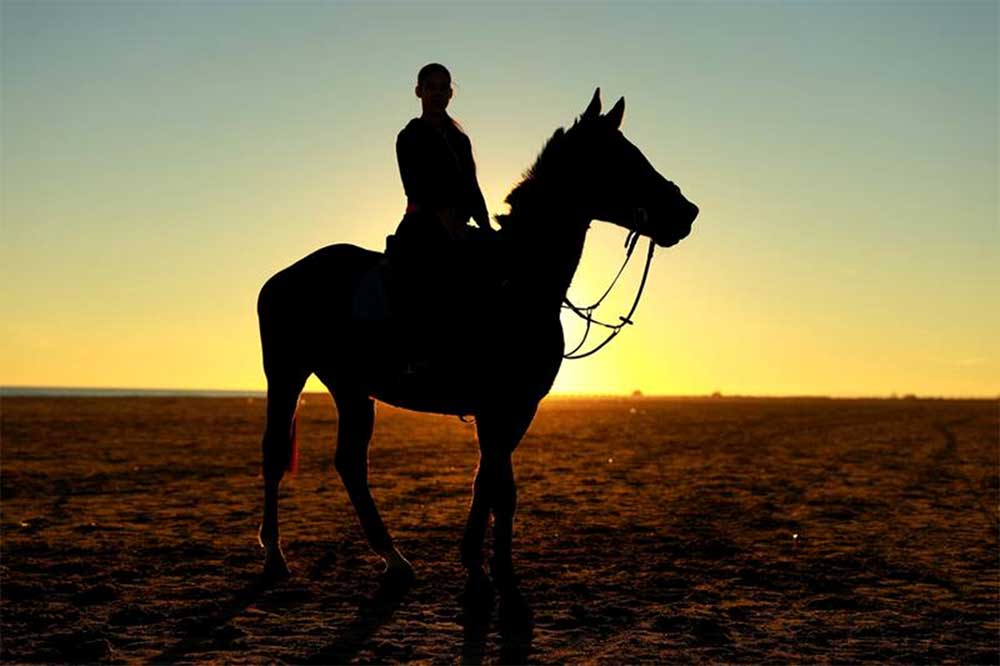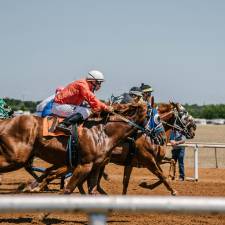
When many of us consider equine sports, a few distinct locations come to mind. Some might first think of Ascot in Berkshire where Queen Elizabeth II makes her annual appearance to watch one of the most prestigious events in horse racing. Others might think of the blue-blooded Kentucky Derby, where the creme-da-la-creme of American royalty have converged to wager eye-watering sums on the track in one of the most respectful venues on the planet.
Those who are not as familiar with the history and legacy of horse racing will make the mistake of discounting the Middle East and the wider Arabic world from the story of horse racing. This is in spite of the fact that, without the people, places, and ingenuity found in this region, horse racing as we know it today would simply not exist. Here's a brief history of the immense debt the equestrian world owes to the Middle East.
Arabian horses: the only game in town
Even those with only a passing interest in equestrian history will likely be aware of the importance of horse breeding on the Arabian peninsula. To this day, the so-called "Arabian horse" is the most recognizable breed on the planet, one that has produced some of the most successful competitors in history including (but not limited to) Marwan Al Shaqab, Cass Ole, Blueskin, Dormane, and Theodore O'Connor, all of which have either won the Kentucky Derby or taken home Olympic Gold.
The origins of horse breeding on the Arabian peninsula go all the way to the earliest days of civilization, with professional breeding taking place in modern-day Lebanon and Syria since at least 2000 BC. It was not until the 19th century when Arabian horses began to be recognized internationally, particularly those that were bred and trained by the Bedouin people of the Peninsula.
Of course, prior to this era, some in Europe already knew of the superiority of Arabian horses. King James, I of England, King William of Wurttemberg, King Alfonso XII of Spain, and Napoleon of France were all known to have invested significant expense and time importing horses from Syria, Lebanon, and modern-day Saudi Arabia.
Originally thought to be bred as war horses, this breed has been treasured for centuries for its unbelievable stamina, elegant posture, and unrivaled speed. Today, certified elite horse breeding facilities in these countries continue to serve wealthy and well-connected clients in every corner of the globe.
The Middle East and modern racing
It is not just horse breeding that the Middle East has historically excelled at. The region has also been an important spiritual home for the sport of horse racing for more than 100 years. From the turn of the 20th century, the Lebanese capital of Beirut, then under French control, has been an important center of the international circuit that still exists to this day.
Up until the 1940s, people from all over the world would come to Beirut to examine champion thoroughbreds and watch them strut their stuff at Bir Hassan. For decades, the horse racing global elite would gather at the Residence des Pins (home of the French High Commission in Beirut) and the Hippodrome du Parc des Pins (today the Beirut Hippodrome, where horse racing continues unabated).
Horse racing in Lebanon and neighboring Syria became a massive entertainment industry employing thousands, only to be disrupted by the Second World War.

Go hard or go home
Although Lebanon and Syria have not been able to recover their status as important centers of the international horse racing circuit, the wider Middle East remains crucial to the sport. The center of gravity has shifted slightly, with the moneyed kingdoms of Saudi Arabia and the UAE now taking up the mantle.
As expert guides to Arabian horse racing explain, these two countries are home to the wealthiest horse races on the planet today: The Saudi Cup and the Dubai World Cup, the former of which has a record-shattering top prize of $20 million. Punters and bettors continue to place wagers on these highly elite races, helping to cement the position of these two countries as emerging epicenters of the sport of horse racing. Such is the interest that online directories have taken to organizing the wide assortment of betting sites available in Arabian countries and ranking them according to reputation and reviews.
Without the influence of the Middle East, horse racing as a sport would be unrecognizable. Though historical locations such as Lebanon and Syria are no longer accommodating horse racing circuits, it remains clear that the neighboring territories of Saudi Arabia and the UAE are rising powers in the sport. We look forward to seeing what exciting developments come out of this region in the coming years.
There are more interesting articles in our section on Horse Racing.













